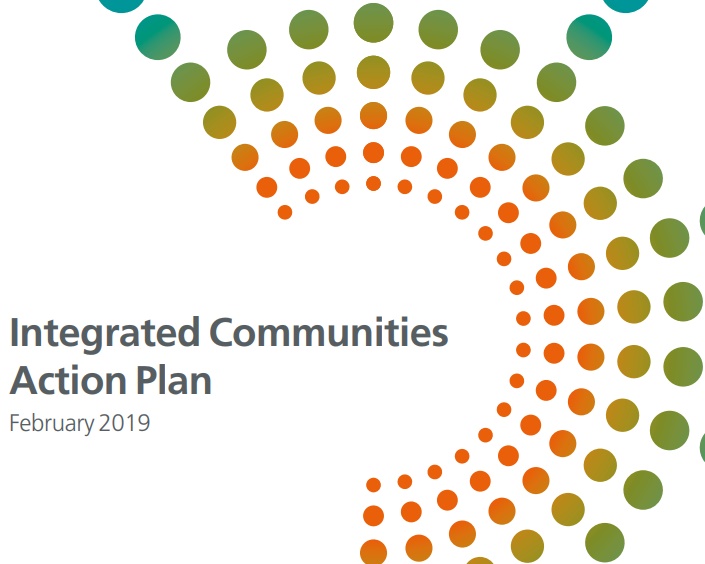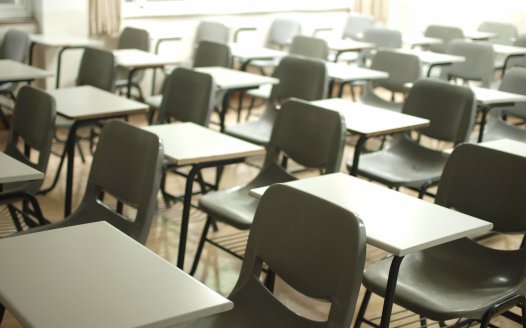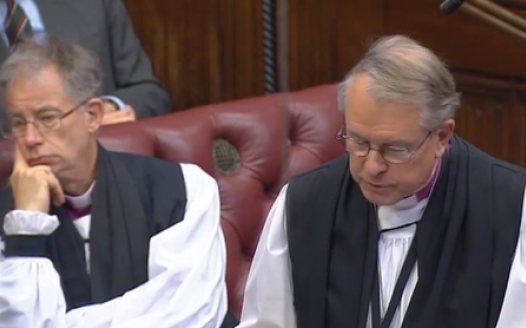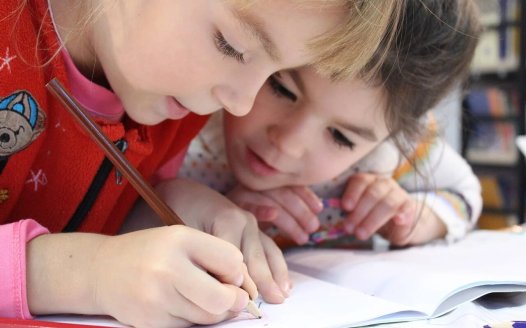Government to crack down on illegal and failing independent schools
Posted: Tue, 12th Feb 2019
The National Secular Society has welcomed government plans to promote community integration by legislating against unregistered and failing independent schools which were announced in a strategy paper this week.
In its Integrated Communities Action Plan, the government announced its intention to legislate to strengthen the power of England's schools regulator Ofsted to act on unregistered schools. It will provide "up to £3m" in funding to selected local authorities to help them "tackle concerns in out-of-school settings".
It also said it intends to legislate to require independent educational settings attended by children full-time during the school day to register with the Department for Education (DfE).
The action plan is based on responses to the government's Integrated Communities Strategy green paper published last March. The NSS responded to the green paper in June and supported proposals to protect children's rights in home education, unregistered schools and independent schools.
The action plan says the government will consult on proposed changes to the law on unregistered settings later this year.
The NSS has been a leading organisation lobbying education ministers over many years to tackle the growing problem of unregistered faith schools, which often teach restricted curricula and are not inspected under the independent school standards. A large proportion of unregistered schools are faith based.
The Education and Skills Act 2008 makes it a criminal offence to run an unregistered school. However, at least 350 unregistered schools have been set up across Britain according to Ofsted without any proprietors facing prosecution.
Last year, a report from Hackney Council in London said that current legislation around unregistered schools "is at best patchy and at worst contradictory". It said council and other statutory bodies "find it impossible to satisfy themselves that the expected standards of safety and safeguarding are in place".
The action plan also announced legislation "to strengthen the enforcement regime for independent schools that fail to meet the required standards". It will also publish advice on independent school standards and a policy outlining circumstances in which the government would "move to enforcement action".
Many failing independent schools are faith schools. In 2017 it was reported that almost half of independent faith schools had been rated as 'inadequate' or 'requires improvement' since the introduction of new standards in 2014. Seven independent faith schools were issued warning notices in December.
The government said it would continue to support the teaching of British values and support local authorities in tackling concerns in out-of-school educational settings. It also said it would "publish revised guidance on home education", although it did not announce any new legislation in this area.
The NSS has called for a registration scheme to help safeguard the rights of home educated children. The action plan announced increased support for school nurseries for "disadvantaged children".
The NSS expressed caution on plans to work with Dar ul Ulooms (Islamic theological institutes) to "identify barriers" to achieving "higher education accreditation". In its response to the green paper, the NSS highlighted that Dar ul Ulooms are likely to adhere to "fundamentalist theology", and that all Dar ul Ulooms registered in England appear to be for male students only.
The action plan said schools should be "inclusive environments which enable students to mix and build positive relations with those from different backgrounds". But it did not directly address the segregation caused by faith school provision and discriminatory admissions criteria in faith schools.
Instead, it said it has "strengthened expectations" for new free schools to promote integration and will continue to support a "national school linking programme" for "different kinds of schools".
The government also praised faith schools in its summary of consultation responses to the Integrated Communities Strategy green paper, which accompanied the action plan. It said faith schools "play an important part in the school system" and are "some of our highest performing schools".
It did not refer to criticism of state-funded faith schools made by the NSS and other organisations who responded to the consultation.
NSS head of education Alastair Lichten said: "We welcome the rhetoric on education, and many of the proposals reflect the recommendations and concerns we have been raising with the DfE. However we need to see if actions and practice match these good words.
"A truly integrated society, where everyone can succeed regardless of their background, requires a genuine and deep commitment to integrated education. Religious control, segregation and discrimination needs to be addressed and rolled back, not accepted and worked around."
The NSS welcomed other aspects of the action plan, including announcements to "civic and democratic participation" of "marginalised women". This would include challenging "socio-cultural norms which can hold women and girls back" and tackling "social isolation". It also announced plans to tackle the issue of forced marriage.
The action plan also announced plans to "educate and inform" couples of the benefits of civilly registered marriages. It also said it would explore "limited reform to the law on marriage and religious ceremonies."
Megan Manson, campaigns officer at the NSS, said plans to increase awareness about the law regarding marriage were "encouraging", but expressed caution over the use of legislative powers to further regulate religious marriages.
She said: "It is a positive step that the government recognises that there is widespread confusion and ignorance regarding the rights and responsibilities involved in a civil marriage, and is working to tackle this.
"However, the laws themselves concerning marriage may hamper these efforts. The fact that English and Welsh law treat Anglican, Jewish, other religious and non-religious marriages differently has added to the confusion regarding marriage. Attempts to introduce more legal obligations on providers of religious marriage ceremonies may add further unnecessarily complexity, and join religion and state even further in the institution of marriage.
"We need a more secular approach to marriage, in which all couples regardless of their religion or belief background are treated equally and are fully aware of the legal implications of entering this arrangement."
While you're here
Our news and opinion content is an important part of our campaigns work. Many articles involve a lot of research by our campaigns team. If you value this output, please consider supporting us today.










